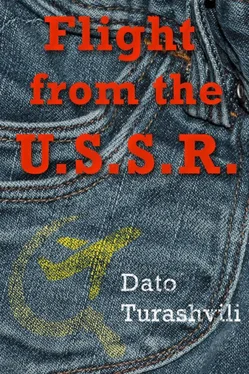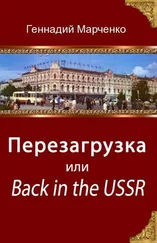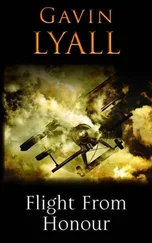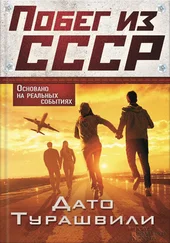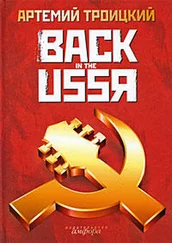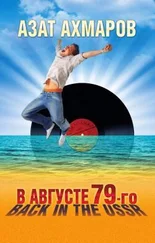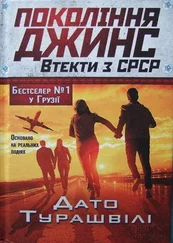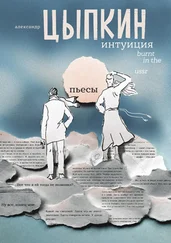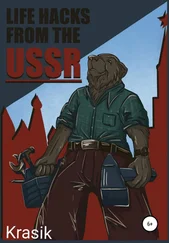Dato Turashvili
FLIGHT FROM THE U.S.S.R.
These blue days and this sunshine of childhood…
Antonio Machado’s last words
We acknowledge the kind support of:

Preface

I didn’t mean to publish this book. I naively believed that after the disintegration of the USSR, Georgia’s Soviet past would become a bitter memory. I was wrong. It turned out that the past can come back with a vengeance, especially if we can’t leave it behind.
We may have distanced ourselves from that country and those times, but we have failed to alter the mindset acquired while we were part of what was called the ‘Empire of Evil,’ when benevolence was scarce. A superpower that made groundbreaking advances during the ‘Space Race,’ could not manage to produce a simple pair of jeans. What can be more innocent than a pair of jeans? So if they couldn’t produce them, they just banned them.
These banned jeans became sweeter than forbidden fruit. Soviet youth were determined to get them at all costs and, not surprisingly, smuggling boomed. Occasionally, there would be a pair of genuine US jeans among those smuggled from all over the world. In those days, every pair of jeans was believed to be American and, as Soviet propaganda was particularly set on destroying American values, many of us thought that happiness lay where jeans were abundant.
There was a grain of truth in such a belief because the Soviet state denied its citizens basic civil rights, the right of property among them. Freedom only came when you reached your grave, or at least the authorities stopped worrying about your freedom when you were safely six feet under. Even atheistic officials knew that sooner or later they would be laid to rest in the same ground, so no one was denied the right to a grave.
There might have been other reasons, but the fact was that a grave was the only property people owned. Such political attitudes marked the start of change in Georgians’ taste for the worst. For centuries, traditional Georgian graveyards were simple and modest. Then in the Soviet era, graves became extremely elaborate — adorned with marble tables and benches, statues, bikes and even cars. Soviet Georgians were confident in only one thing — their graves belonged to them. So they were taken care of and zealously protected. People built and decorated them as they would do if they owned real estate. The authorities turned a blind eye to graveyard eccentricities. The principles of the Soviet regime did not extend to the Georgian graveyards.
The Georgian authorities demonstrated more respect to the dead than to the living. However, there was one prerequisite for a guaranteed grave — you had to die a natural death. If you were executed for a crime, a dead convict would certainly be buried but without a proper grave. Starting in the 1920s, thousands of executed convicts found their eternal resting place in various unmarked stretches of land across the country. Very often, even the diggers assigned the job of preparing a deep hole (not a grave) were unable to identify the places with certainty because there were no landmarks and the work was usually done at night in complete darkness.
For that reason, it was astounding that one digger identified a barren field as the final resting place fifteen years after the burial. He was a mere grave-digger. Had he been the killer, he would have made sure to forget the immense, unremarkable field. He thought he remembered the exact place where Gega Kobakhidze was buried years back. Unlike a poet shedding tears over a grave, he did not weep that November night, trying to remember the spot in the moonlight. He had kept the secret for a long time, only to share it fifteen years later with Gega’s mother. God knows how many people had whispered to Natela Machavariani that they knew the precise location of her son’s grave, but on this occaision her maternal instinct told her that this man was not lying.
The man couldn’t be lying. His face was like stone, with all he had seen and experienced in his life hidden behind it. Natela immediately thought he looked dead himself. It was all he knew. For years, ‘well-wishers’ who claimed they could show her the grave of her son approached Natela. And she followed each and every one on a wild goose chase. Some were sent by the KGB, others demanded a reward and a few just abandoned her at distant railway stations on the way to the barren plains of Siberia.
It’s hard to believe in death until you face it. It’s even harder to believe in death when it’s your child, especially when the authorities have hidden all details about it without an explanation. But there are no bans on dreaming and hoping for the better. Hope belongs to you and only you, helping you through your life, driving you ahead, impelling you to go on with your life.
For many years various people nurtured this hope in Gega’s mother, claiming that he was seen in this or that prison or special Siberian camp. Similar claims were made about the other missing members of the group. Parents went to look for their sons. They went not because they believed it was possible to find a trace of their executed sons in this immense, unlawful, terrifying country, but because they feared their hope would die.
And this gravedigger appeared when the hope was about to die.
Other parents, too, decided they preferred to face the truth, however painful it might have been. They decided it was time to know where their sons found their final resting place. So when the gravedigger approached her, Natela immediately guessed he knew much more than others before him. She knew immediately and unerringly he would be the one to bury their hope.
It was a small group, and they went in secret. It was cold and wet, but the women were not afraid to dig alongside the men. The rain stopped from time to time, but the soggy soil was so heavy to dig that the men’s raspy breathing carried across the immense, barren, nameless field. Natela was sure the man had remembered the precise place where her son was buried, though the field had long been a mass graveyard for the executed political and criminal convicts of the Soviet regime. They were buried at night, in utter secrecy, without coffins or indications of their names.
Even the gravedigger was surprised to hear his cold spade hit the coffin. Only then did he remember how exceptional it was that an executed prisoner was buried in a coffin. He repeated with more confidence the phrase which brought the parents to the site. He knew Gega Kobakhidze lay there. The coffin was metal as opposed to the traditional wooden ones. Misha, Gega’s father, nearly fainted at the clanking sound. The women wanted to give him some water, but they didn’t have any and the nearest village was miles away. Strangely enough, no one could say with any certainty which way they had come to the field. On their secret trip, each was trying to memorize the road they followed, but the metallic sound erased everything else from their minds.
They stood on a grassy field as large as a city, while under their feet lay a massive graveyard. It hid the darkest history of 20th century Georgia. The field had accommodated those unwanted by the Soviet authorities, those brought from obscure underground dungeons to their final resting place.
Читать дальше
